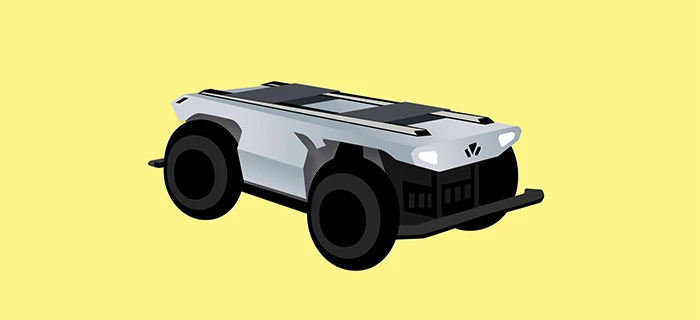Helsingborg to test robotic garbage collection
Noisy garbage trucks block the streets and interrupt early morning sleep; that is what garbage collection has looked like for a long time. Now the City of Helsingborg, together with Robot Minds AB and Nordvästra Skånes Renhållnings AB (NSR), wants to implement a project where self-driving robots collect the garbage instead. Helsingborg will receive SEK 2.8 million from Sweden’s innovation agency Vinnova to test autonomous robots in waste collection.

The money received by the project, which will run for two years, from August 2023 to August 2025, will be utilised to develop a robot capable of picking up bins in ordinary garbage rooms and delivering them to a collection point. From there, the garbage is transported regularly to a recycling facility.
–It will be extremely exciting to explore the possibilities that robots can contribute, says Dennis Kerkhof, project manager of the H+ urban renewal project.
Read more about the urban regeneration project on the H+ website.
The benefits of a robotic collection system are that residents will not be disturbed by noise and congestion caused by garbage trucks. It will also reduce emissions and minimise the risk of accidents. Furthermore, development and urbanisation have resulted in increasing amounts of waste in our cities, which are expected to increase.
The Trial of Automated Waste Collection in Helsingborg is Unique in The World
–The project gives us the opportunity to develop new technology, create solutions where robots can be part of the smart city, contribute to its sustainability and test interaction between robots and people in daily life”, says Elena Sjödin, Founder and CEO of Robot Minds AB.
Whilst there are related projects that involve robots picking up rubbish from the street or the beach, mobile robotic rubbish bins, and AI-powered garbage sorting robots at recycling facilities, there are no projects specifically focused on garbage collection.
The project aims to explore several different things, firstly, if it is possible to implement garbage collection in practice with the required technology and infrastructure. If the use of robotics can be implemented with today’s laws or if the laws require updating. Finally, it will examine the benefits for residents and the project’s economic viability.
In addition, there is limited experience in using service robots in the city, and people are not used to interacting with them in urban spaces; this is a further aspect to be explored.
Robot Tests Show the Way Forward
The robot will be tested first in a test environment and then under real-life conditions. After the tests are completed, the waste collection will be optimised using sensors in the bins and a smart waste management platform, allowing the robots to know when it is time to empty a bin.
In connection with the robot test, Helsingborg also wants to explore other uses for service robots in the city, including use in schools or care facilities when they are not busy in the garbage room.
Read more about the ”Waste management with robots” project on the Vinnova website.
